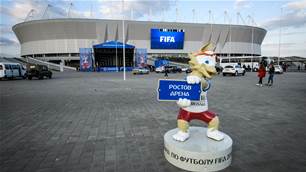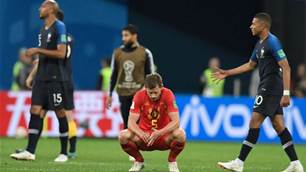ZONAL marking, false nines, Christmas trees and catenaccio – the most basic tools of the managerial trade, right? Paul Simpson argues otherwise...
"Football should leave room for freedom of expression"
All this would be easier to understand if there was overwhelming evidence that tactics really did conquer all. But how many trophies have tactics actually won? Since 2000, only two and a half teams have won the Champions League through sheer tactical virtuosity. The two? Mourinho's Porto (2004) and Inter (2010).
The half? Pep Guardiola's Barcelona in 2009, who took Arrigo Sacchi's pressing game to
a new artistic peak. But Pep had some seriously decent players. Only two coaches have won the European Cup/Champions League and the World Cup: Marcello Lippi and Vicente del Bosque. Neither are great tactical innovators. And the two most admired teams in the history of football - Real Madrid (1960) and Brazil (1970) - were hardly tactically revolutionary.
The biggest recent triumph of tactics over players was Otto Rehhagel's Greece winning Euro 2004. No one outside Greece will recall the tournament with much affection, but his use of man-marking, a sweeper and a five-man midfield was an innovative throwback that flummoxed France, the Czech Republic and Portugal.
The three most tactically innovative teams since World War II are probably Hungary's Mighty Magyars, Ajax's Total Footballers and Sacchi's Milan. All three pioneered a radically different playing style and had some of the greatest players ever to grace the game. Was the Hungary side that demolished England in 1953 great because of the vision of coach Gusztav Sebes - or the transcendent genius of Ferenc Puskas, Nandor Hidegkuti and Sandor Kocsis? Ajax wouldn't have won three European Cups in a row without Michels' meticulous team-building - or the solutions Johan Cruyff devised on the pitch. And did Sacchi's Milan really belong to him - or Franco Baresi, Ruud Gullit, Paolo Maldini, Frank Rijkaard and Marco van Basten?
Reflecting on England vs Hungary in 1953 in Inverting The Pyramid, Wilson initially insists: "It was because of tactics that Hungary won." But a few lines later, he admits: "While the tactics permitted the technique to flourish, without the technique the tactics would have been redundant." (The argument can run on: did Michels pick the players to suit Total Football or did watching geniuses like Cruyff inspire him to envisage a revolutionary style of play?). It is hard, too, to draw conclusive lessons from Mourinho's triumphant first season at Chelsea. He won 16 more league points in 2004-05 than Claudio Ranieri in 2003-04 (like the Tinkerman, though, he could only reach the Champions League semi-finals). But he spent over £91m ($146m) on new players, bringing in Didier Drogba, Petr Cech, Ricardo Carvalho and Arjen Robben. Which mattered more in Chelsea's first league title in 50 years: Mourinho's tactical acumen or the signing of four world-class stars?
Bob Paisley, still the only coach to win three European Cups, didn't have much truck with tactics, once saying to Joe Fagan: "What does 'going round the back' mean? We're not burglars, are we?" It is easy to say the game has changed since the 1970s but Lippi's Juventus, which reached three Champions League finals in a row, weren't too shabby to watch. Lippi's particular genius was to find a system to suit the geniuses he had on the pitch. His Bianconeri exemplified Wilson's observation that "success on the pitch - in the best case - stems from the symbiosis of theory and the players available".
Wenger's tactical skill is routinely questioned but his philosophy of football seems sound: "There is always a balance to strike. Football is first and foremost a game. It has a framework but it should leave room for freedom of expression." If we don't strike the right balance we may soon echo Bobby Charlton who, having watched England play like turnips under Taylor, asked: "Whatever happened to football?"
This article appeared in the April 2011 issue of Australian FourFourTwo magazine. To buy back copies of this issue call 03-8317-8121 with a credit card to hand.
Related Articles

Argentina Football Association Arranges Head Coach Sampaoli's Exit Terms - Reports

Southgate not judging Kane for England's loss












